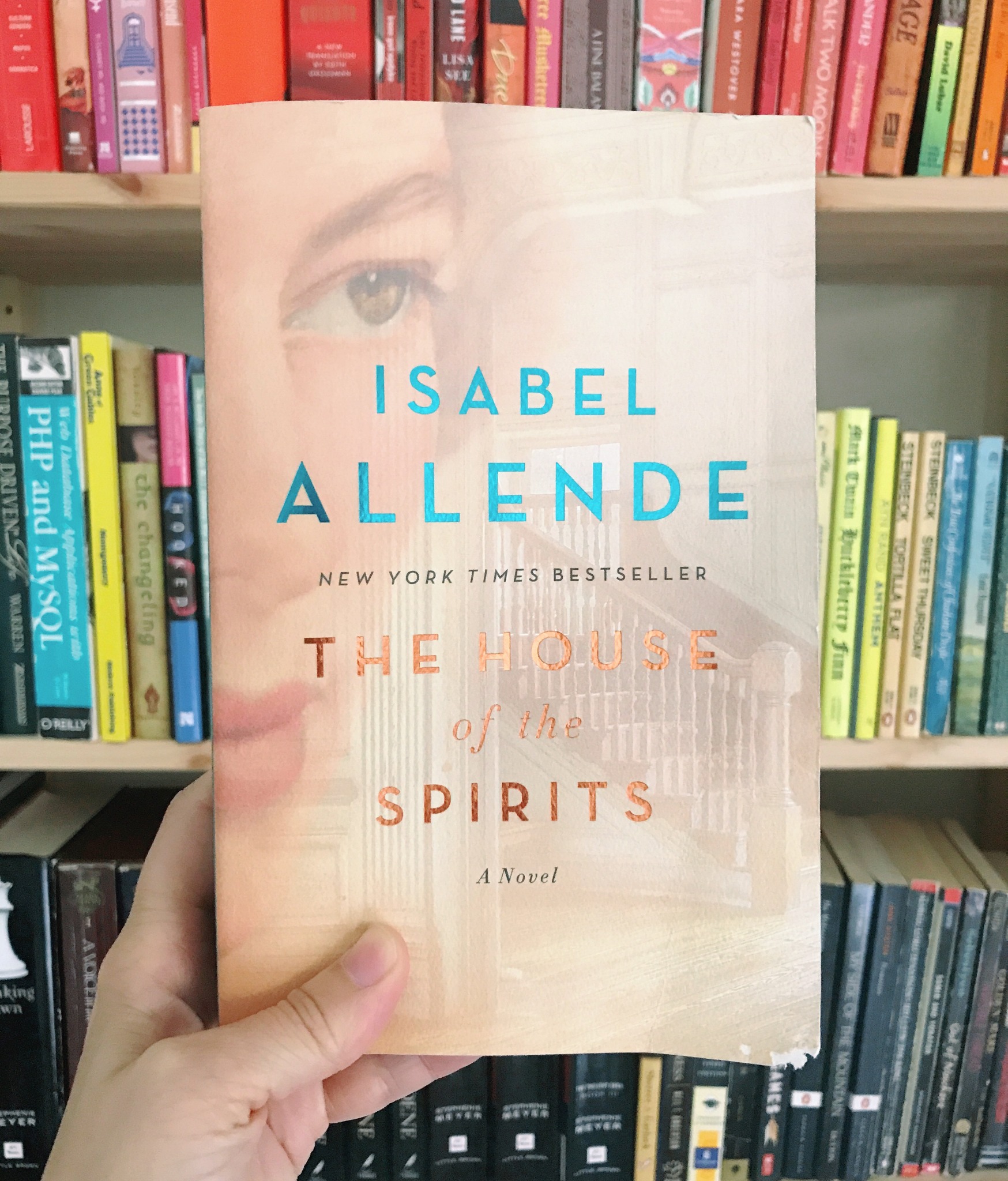Book Review: THE HOUSE OF THE SPIRITS

The House of the Spirits is Isabel Allende’s debut novel. It was published in Buenos Aires in 1982 and quickly became a best seller and the catalyst for Allende’s famous career as an author.
It is a sweeping epic spanning three generations of women and the events surrounding their times. The first half of the novel, and perhaps more, seems like a different book compared to the last part. The story meanders through the lives of these women and the political and cultural aspects of the nation that is never mentioned yet believed to be Chile from many hints to major events and people of that country during the years this epic novel spans.
The House of the Spirits is a bit of a misleading title, as the magical realism seems a secondary part to other aspects. In fact, it could’ve been left out altogether and I don’t think much would be missed, which was disappointing. I was hoping this aspect would have a bigger role. In a way, it was placed in a such a way as to make it seem somewhat normal. It wasn’t given a major role. So in this regard, it allowed the characters to be themselves without too much hoopla about their abilities. On the other hand, I was hoping the magic would show up in ways that shaped the story, but it really didn’t. Clara could see the future for one thing, and often did, but then so did the narrator who frequently gave us more than foreshadowing, instead outright telling us this person would never see that person again. Or this person was going to die this way, etc. When Clara spoke of the future, it was intriguing; when the narrator did the same, it was annoying.
Another interesting/annoying aspect of the novel was when Esteban Trueba, the husband, father, and grandfather of the three women, suddenly became the narrator of the story at random times throughout the novel. It was confusing when suddenly we read, “I…” instead of, “he or she,” etc. Wait! Who’s talking all of a sudden? And this happened at various seemingly random and infrequent intervals. It was quite strange. Trueba points out that he was the one writing the story based on the accounts Clara kept throughout her life, but then why wasn’t he telling the story all along? Also, in the epilogue, we find out that Alba, the granddaughter, also played a part in helping write the story… confusing the narrator issue even further.
This was a slightly minor issue and didn’t necessarily affect the story overall. Except for me, Trueba is a miserable, very unlikeable character who is the one constant character throughout the entire novel. So knowing that he was narrating did not help me like the story as a whole. He is complex, but in the end hasn’t changed very much as you hope a character of this type will, but then maybe that’s more realistic than the typical character with many flaws who overcomes them. Regardless, I didn’t like him at the beginning. And I didn’t like him in the middle. And I didn’t like him in the end. His only redeeming quality was his love for Alba, which allowed me to not hate him completely.
I found the end part of the story the most intriguing when more historical aspects are brought in and the narrative seems to flow better. I got lost in those pages while I felt like I was plodding a bit through the first half.
It was a compelling and interesting novel, but I didn’t love it. I find these epics difficult. I can’t imagine trying to write one and keep everything consistent throughout. And I find that random things seem to be thrown in. But then I also can’t imagine trying to wade through numerous edits of such a work! So I think some grace has to be given for such a grand scale more so than for a smaller, more homogeneous work. (I felt the same about Pachinko. It had similar issues of epic-ness.)
There’s also something to be said for time and place. The setting and historical aspects of this story would have spoken more strongly to those in that setting or dealing with similar political issues in their countries at that time. Reading from such a distance both in time, awareness, and situation, it is easier to judge because the emotional tie is not strong unless the reader has had similar experiences.
All that being said, Allende is clearly a masterful writer, and I am definitely interested in reading her other works. If you’re only going to read one, I wouldn’t suggest this one. But if you were going to do a study of Allende or wanted to know more about the history of Latin America through the medium of historical fiction, I would recommend The House of the Spirits.
Buy The House of the Spirits: Amazon | Book Depository
*Contains affiliate links.

0 Comments Add a Comment?